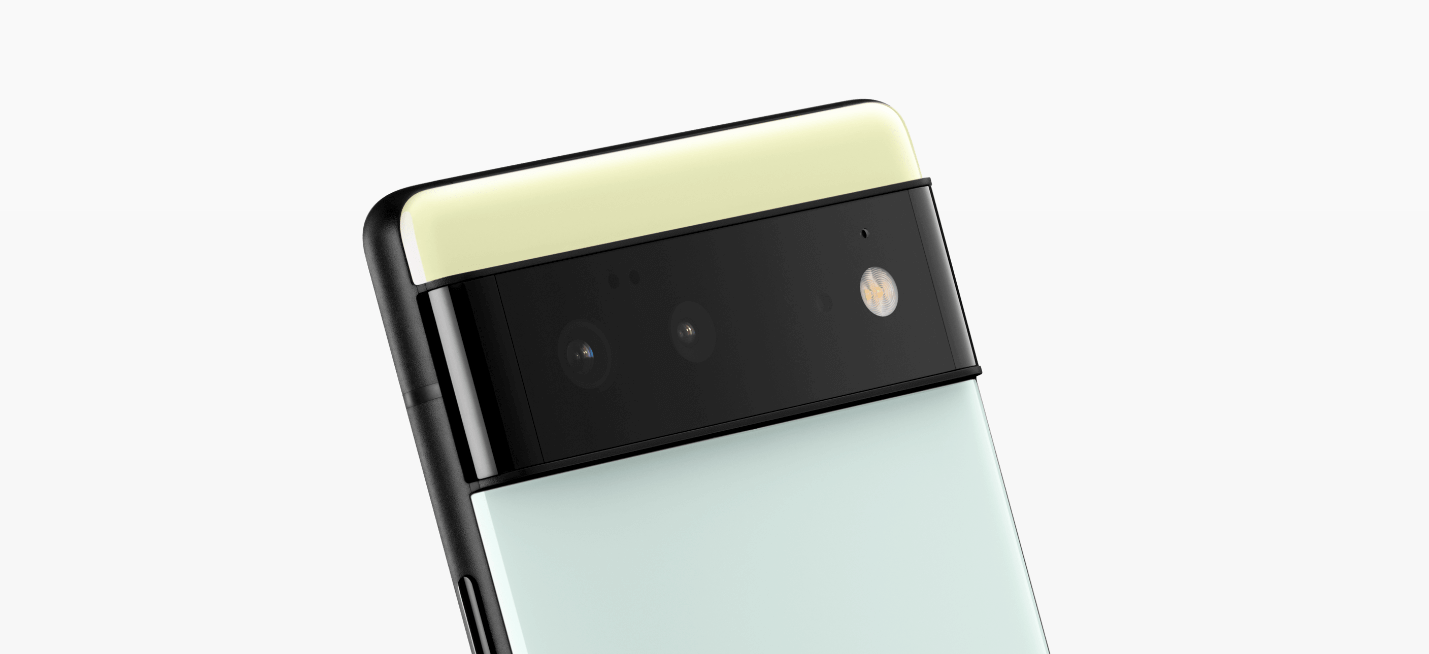Google’s newest Pixel phones – the Pixel 6 and 6 Pro – are out.
And (finally) there is good news. It looks like Google has finally gotten their act together and built not one, but two quality phones with few compromises.
Pixel 6 and Pixel 6 Pro Tech Specs
The Pixel 6 has the following basic specs:
- 90hz, 6.4-inch screen
- Dual camera setup: 50MP wide camera, 12MP ultra-wide camera
- 8GB of RAM
- 128GB or 256GB of storage
- 4600 mAh battery with fast charging, Qi wireless charging
- Google Tensor processor
- 5 years of security updates (but only 3 for OS updates – major bummer)
The Pixel 6 Pro has:
- 120hz, 6.7-inch screen
- Triple camera setup: 50MP wide camera, 12MP ultra-wide camera, and 48MP telephoto camera with 4x optical (and 20x digital) zoom
- 12GB of RAM
- 128GB, 256GB or 512 GB of storage
- 5000 mAh battery with fast charging, Qi wireless charging
- Google Tensor processor
- Just like the Pixel 6 – 3 years of OS updates, 5 years of security updates.
Pixel 6 and 6 Pro Thoughts
Finally, Google has stopped giving the top-of-the-line model strange, gimmicky features (like Pixel 4’s Motion Sense).
Instead, the Pixel 6 is a very good (and competitively-priced) flagship-level phone, while the Pro adds a bigger, and faster-refreshing screen, a telephoto camera, more RAM, and the ability to upgrade storage to half a terabyte.
The Camera Strip
This is almost certainly the most distinctive part of the phone. Both Pixel 6 models have taken the camera bump to the next level, and feature a camera bar – which adds about 2-3mm of height to the strip running across the back of the phone.
While this does make the phone a bit thicker around the camera strip, it does have the advantage of giving your fingers a place to support the phone and it keeps the phone from wobbling if you’re using it on a table or other flat surface.
Google’s Custom Chip
Google’s SoC, the Tensor chip, was given a thorough review over at Anandtech, and they found that its overall performance was fine.
It’s not outstanding in the same way that Apple’s A15 chip is, but it’s comparable (or slightly better) than the SoC’s in most competing Android phones (Qualcomm Snapdragon 888 and Samsung Exynos 2100). For the first run at an in-house processor, it does its job very well, without any obvious disadvantages or weaknesses (unlike last year’s notoriously bad Pixel 5 gaming performance).
It does seem like much of the “custom” hardware on Google’s Tensor SoC is designed to improve specific tasks that were not easy to do on previous SoC chips. Specific tasks like offline dictation, voice recognition for the “Ok, Google” command and specific camera features have been improved on the Tensor chip.
Long-Term Support
The big disappointment is still the Android OS update timeline. Like before, Google still only offers 3 years of guaranteed OS updates, with an additional 2 years of security updates. For comparison, Samsung gives you 3 years of OS updates/1 additional year of security updates on their flagship phones. Apple is still the reigning champ here, with 6 years of OS updates for iPhones.
The 5 years of security updates are appreciated, but it seems odd that a phone with a Google-designed chip wouldn’t have any additional years of OS support. Maybe this will be something that improves over time, and Google simply wanted to under-promise for this first Tensor phone.
Overall Impressions
The headline really captures it – while there are some things that aren’t perfect, it seems like Google and the Pixel team have finally gotten their act together and produced a pair of good phones.
Unlike the Pixel 4 (and its lackluster Motion Sense hardware) and the Pixel 5 (which performed worse and cost more than other comparable handsets), the Pixel 6 seems to be a good phone – no qualifiers or “buts” necessary. And, if you want all the Pixel 6 goodness plus some nice-to-have extras (larger, 120hz screen; telephoto camera), the Pixel 6 Pro is a very competitively-priced step-up model without any serious drawbacks of its own.
Maybe the best part, though, is that Google has delivered all this with relatively modest prices – the Pixel 6 starts at $600 and the Pixel 6 Pro starts at $900 – quite a bit below similar offerings from Apple, Samsung, etc.




Leave a Reply
You must be logged in to post a comment.